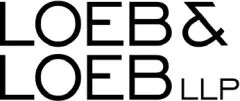- within Consumer Protection and Employment and HR topic(s)
Members of both the House and the Senate have introduced federal bills limiting the use of geolocation data collected by mobile devices. Both The Location Privacy Protection Act of 2011 and The Geolocation Privacy and Surveillance(GPS) Act are aimed at curbing the collection and use of data by mobile device manufacturers and others. The GPS Act would also prevent law enforcement from obtaining this data without a warrant.
Sens. Al Franken (D-Minn.) and Richard Blumenthal (D-Conn.) introduced The Location Privacy Protection Act (S. 1223). According to statements issued by Sen. Franken, chairman of the Judiciary Subcommittee on Privacy, Technology and the Law, the bill is aimed at closing "loopholes" in current federal law allowing device manufacturers, app developers and telephone companies offering wireless Internet service to freely share their consumer location information with third parties. The bill would require, among other things, that companies obtain express consent from consumers before both collecting geolocation data and sharing it with third parties.
While The Location Privacy Protection Act of 2011 would apply only to nongovernment entities and does not affect the ability of law enforcement to obtain geolocation data, the GPS Act (H.R. 2168, S. 1212), introduced by Sen. Ron Wyden (D-Ore.) and Rep. Jason Chaffetz (R-Utah), applies to government agencies - including law enforcement - as well as commercial entities and individuals. Under the GPS Act, companies would be required to obtain consent before collecting, using or sharing the data with third parties. For law enforcement, information gathered from mobile devices would be treated much the same as a wiretap, requiring a warrant to obtain the information.
To read more about The Location Privacy Protection Act of 2011 and the Geolocation Privacy and Surveillance Act, please visit Loeb & Loeb's Media Tech Law Blog.
The content of this article is intended to provide a general guide to the subject matter. Specialist advice should be sought about your specific circumstances.


